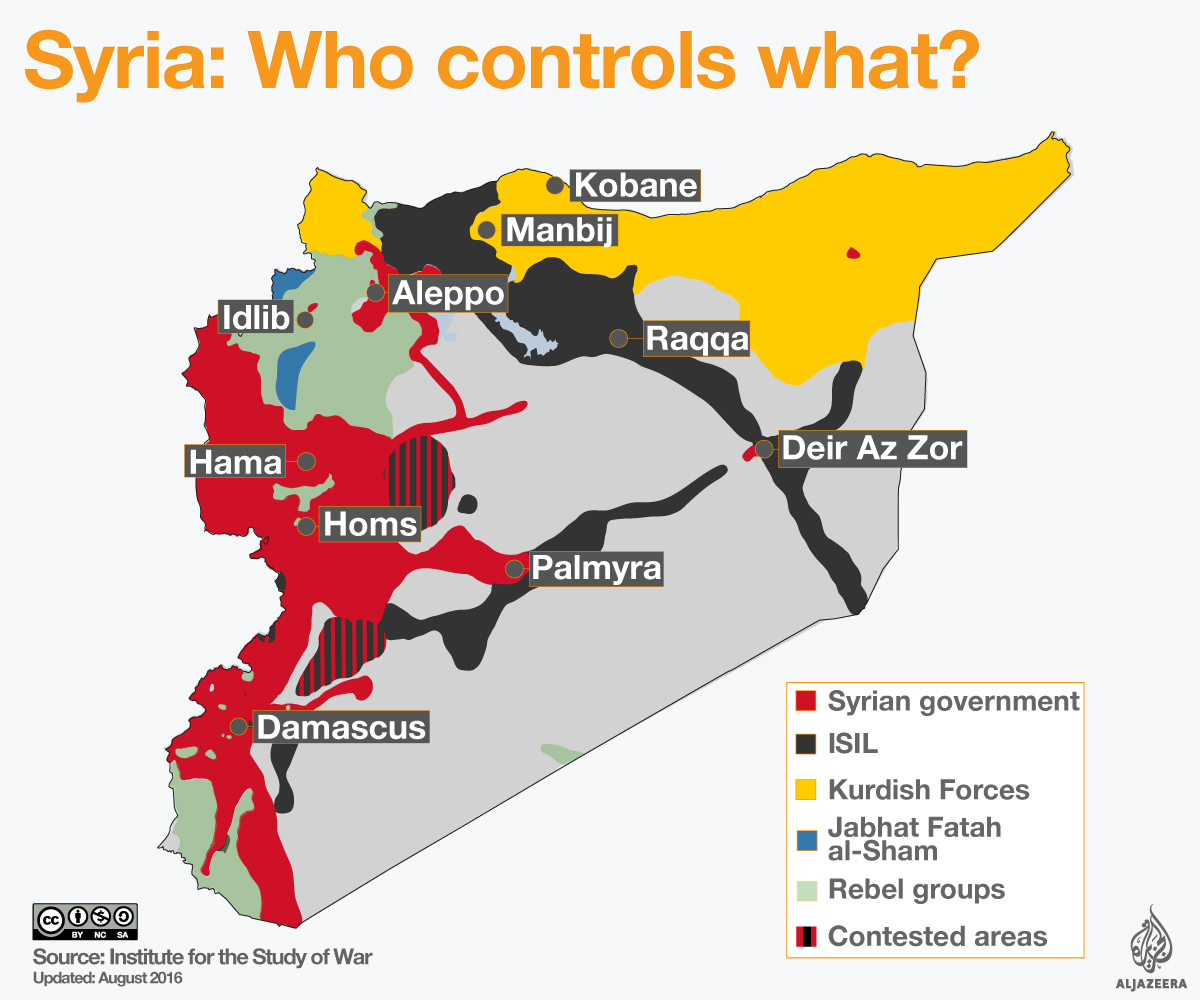Syria’s war: Use of chemical gas to be investigated
Probe announcement by chemical-weapons watchdog comes as bombing kills at least 29 people in Tadif and al-Sukkari.

The world’s chemical weapons watchdog will investigate the suspected use of chlorine gas in an opposition area of the Syrian city of Aleppo, calling reports of the latest gas attack disturbing.
The Security Council is also due to discuss a report by the United Nations and the watchdog group, the Organisation for the Prohibition of Chemical Weapons (OPCW), that blames Syrian government forces for previous toxic gas attacks.
Keep reading
list of 4 itemsMoscow theatre attack suspects show signs of beating in court
Four men showing signs of severe beating charged over Moscow concert attack
Russia mourns Moscow concert hall attack victims as death toll rises to 137
A video obtained by Al Jazeera showed what activists say was the aftermath of an attack that caused at least one death and dozens of cases of suffocation.
|
|
Local activists and medical sources said the Syrian government used a helicopter to drop two barrel bombs loaded with gas on residents.
“We are disturbed by the recent allegations of the use of toxic chemicals in Aleppo,” Ahmet Uzumcu, the OPCW director-general, said in Seoul where he was attending a security forum.
“Such allegations are taken very seriously by the OPCW. The use of chemical weapons by anyone, anywhere and under any circumstances is unacceptable.”
The group will use all available means to investigate the allegations of toxic gas use in the attack and submit the findings to members states of the Chemical Weapons Convention, said.
Al Jazeera’s Hashem Ahelbarra, reporting from Gaziantep on the Turkish border with Syria, said most victims were being treated with breathing difficulties.
“Activists have complained that international communities are not doing what they can,” he said.
Nine gas attacks
A year-long UN and OPCW inquiry into Syria, unanimously authorised by the 15-member Security Council, focused on nine gas attacks in seven areas and determined that Syrian government troops were responsible for two of them, in 2014 and 2015.
The inquiry also found that the Islamic State of Iraq and the Levant (ISIL) group has used sulphur mustard gas.
The Syrian government has denied previous accusations that it used chemical weapons during the five-year-old civil war.
Meanwhile, in a fresh wave of attacks, at least 29 people have been killed by bombings in Tadif and al-Sukkari, according to the independent monitoring group the Syrian Observatory for Human Rights.
“Al-Sukkari’s attack resulted in the lives of mostly civilians,” Al Jazeera’s Ahelbarra said.

Syria’s main opposition bloc has put forward a plan for a political transition and a ceasefire to end the civil war in the country.
On Wednesday, the High Negotiations Committee (HNC) said the proposed process would start with six months of negotiations aimed at setting up a transitional administration made up of figures from the opposition, the government and civil society.
President Bashar al-Assad would be required to leave office at the end of those six months, the HNC, which represents Syria’s political and armed opposition factions, said at the meeting in London attended by foreign ministers from around the world.
The transitional body would then run the country for 18 months, after which there would be elections.
Riyad Hijab, the chief HNC negotiator, who defected from the government in 2012 after being appointed prime minister, said the bloc would reject any agreement struck by Russia and the United States if it significantly differed from the HNC’s terms.
|
|